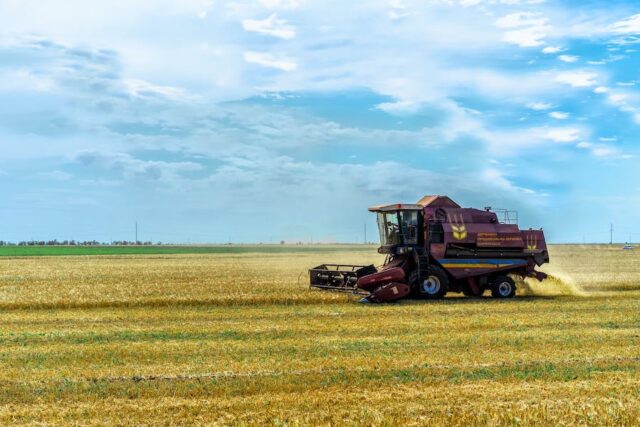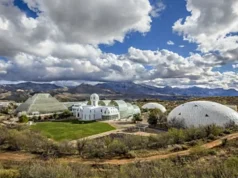Why are billionaires buying farmland? There has been a growing trend among billionaires to invest in farmland in recent years.
This phenomenon has sparked curiosity and raised questions about the motivations behind such acquisitions.
Why are these ultra-wealthy individuals, who have made their fortunes in various industries, now focusing on agriculture?
These are questions anyone will want to know answers to. Lucky for you, we’ve got you covered. In this piece, we’ll be looking into why billionaires are buying farmland and exploring the potential implications of this trend.
Why Are Billionaires Buying Farmland?
- Inflation hedge – Farmland has long been recognized as a reliable inflation hedge, consistently preserving its worth even during periods of diminishing purchasing power.
Recent data reveals that U.S. farmland experienced a substantial increase in value, rising by an impressive 10.2% in 2022, coinciding with an average inflation rate of 8%.
This positive correlation between farmland and inflation further solidifies its reputation as a resilient asset class.
With its proven track record and potential for continued growth, farmland is an attractive option for those looking to safeguard their investments in an uncertain economic climate.
- Total investment returns – Farmland has consistently proven to be a lucrative investment option, outshining other asset classes in terms of total returns.
The upward trajectory of commodity prices due to inflation has directly translated into higher profits for farmers and a substantial increase in the value of the land itself.
Looking back at historical data from 1992 to 2022, the average annual return on investment in farmland stood at an impressive 10.71%, surpassing the performance of comparable assets.
This remarkable track record underscores the stability and profitability associated with investing in farmland as a long-term strategy for wealth accumulation.
- Low pricing vitality – Farmland investments offer reduced pricing volatility compared to traditional asset classes like equities or gold and provide a unique opportunity for investors to diversify their portfolios.
With farmland, investors can benefit from the stability and predictability of agricultural markets, which tend to be less affected by short-term economic fluctuations.
This makes managing exits and planning for future returns much more straightforward and less prone to surprises.
- Supply and demand dynamics – The long-term outlook for farmland investments remains promising, driven by the projected surge in demand for food production.
According to the Food and Agricultural Organization, there is a forecasted need for over 50% increased food production by 2050. However, this growing demand comes when the available supply of farmland is decreasing.
As a result, investing in farmland presents a unique opportunity to meet the global population’s future needs while potentially reaping substantial returns on investment.
- Global investment trends – With prominent figures like Warren Buffett, Bill Gates, and Jeff Bezos leading the way, others are following.
In fact, it is estimated that around 60% of land in the United States is privately owned by these wealthy individuals.
This trend extends beyond just the U.S., as billionaires worldwide are also diversifying their portfolios by investing in agricultural assets.
Notable landowners like John Malone serve as a testament to the growing interest in farmland as a lucrative investment opportunity.
- Endorsement by successful investors – Warren Buffett, one of the most successful investors of our time, has long been a proponent of investing in farmland.
He once famously said, “I would rather have a quarter acre of productive land than all the gold in the world.”
This endorsement from someone as esteemed as Buffett carries significant weight and highlights the potential profitability of agricultural investments.
Similarly, Michael Burry, another renowned investor, has also expressed his support for farmland investments, further solidifying the credibility and appeal of this asset class.
With these endorsements from influential figures like Buffett and Burry, it’s clear why other mega-rich people are venturing into farmlands.
- Great wealth transfer – As the great wealth transfer continues to shape the financial landscape, billionaires are increasingly turning to land investments to preserve and grow their fortunes for future generations.
By strategically investing in land, these wealthy individuals can ensure the long-term security of their wealth while also providing a solid foundation for their heirs.
In an ever-changing world where financial stability is paramount, land investments offer a tangible asset that can withstand economic fluctuations and provide a steady source of income.
With the great wealth transfer in full swing, it’s no wonder that billionaires are flocking to land as a key component of their investment portfolios.
What Are The Implications Of Billionaire Buying Farmlands
The trend of wealthy people purchasing farmlands worldwide has raised many concerns and questions about the potential implications.
What could be the potential consequences for the agricultural sector and society as a whole?
- Pricing out young farmers – The acquisition of farmland by billionaires poses a challenge for young and aspiring farmers and perpetuates the widening gap in the agriculture industry.
As these billionaires continue to amass large quantities of land, it becomes increasingly difficult for new, smaller-scale farmers to enter the market.
The competitive nature of the land market, driven by the influx of wealthy investors, further exacerbates this issue.
Ultimately, this trend threatens the sustainability and diversity of our food system, as we risk losing the valuable contributions that young farmers bring to the table.
- Potential monopoly concerns – The concentration of farmland ownership in the hands of a few billionaires is a topic that raises concerns about potential monopolies.
This level of control and influence over such a vital industry can have far-reaching implications. It can potentially limit competition and stifle innovation within the agricultural sector.
Addressing these concerns is crucial to ensure the industry’s fair and sustainable future, encouraging healthy competition and fostering innovation for all stakeholders involved.
- Disconnect from local communities – Large-scale investments in farmland by billionaires can have unintended consequences, such as a disconnect from local communities.
When landowners are absentee or solely focused on profit, they may overlook the needs and concerns of those who rely on that land for their livelihoods.
This can lead to negative social and economic impacts, as local communities feel marginalized and neglected.
- Impact on small-scale agriculture – As these wealthy investors acquire more land, there is a risk of favoring large-scale industrial farming at the expense of local and family-owned farms.
This consolidation could decrease diversity within the agricultural sector, as smaller farms may struggle to compete with the resources and economies of scale that larger operations possess.
Additionally, such a shift may also undermine the resilience of the overall agricultural system, as it becomes more reliant on a few dominant players.
- Focus on profit over sustainability – Billionaires who invest in farmland may prioritize financial gain over sustainable agricultural practices.
This can lead to resource exploitation and neglect of environmentally friendly farming methods. However, not all wealthy individuals follow this approach.
Some billionaires recognize the significance of sustainable farming and actively support initiatives that promote responsible land management and conservation.
Possible Usage Of These Farmlands
The acquisition of farmlands by billionaires can serve various purposes beyond traditional agriculture. Here are a few possible ways these farmlands could be utilized.
- Sustainable agriculture and organic farming – Some billionaires may be keen on promoting sustainable practices.
They might use the farmland to cultivate organic produce, supporting healthier lifestyles and contributing to environmentally-friendly farming methods.
- Agroforestry projects – They could invest in planting trees alongside traditional crops to create sustainable and diverse ecosystems.
Agroforestry not only provides additional sources of income for farmers but also helps combat deforestation and mitigate climate change by sequestering carbon dioxide from the atmosphere.
- Address food security issues – By investing in agricultural technology and infrastructure, billionaires can increase crop yields and improve access to nutritious food.
This could involve implementing advanced irrigation systems, investing in greenhouse technology, and supporting research and development in crop genetics.
These farmlands can significantly impact global hunger and malnutrition by ensuring a reliable and sustainable food supply.
Conclusion
Why are billionaires buying farmland? The increasing trend of billionaires buying farmland can be attributed to various factors.
While reducing their actions to a simple desire for profit or control is tempting, it is important to understand the broader implications.
Many billionaires recognize the importance of investing in sustainable agriculture and food security and the potential for positive environmental impact.
Additionally, farmland offers a tangible and secure asset in times of economic uncertainty. However, ensuring that this trend does not lead to the consolidation of land ownership and the marginalization of small-scale farmers is crucial.














